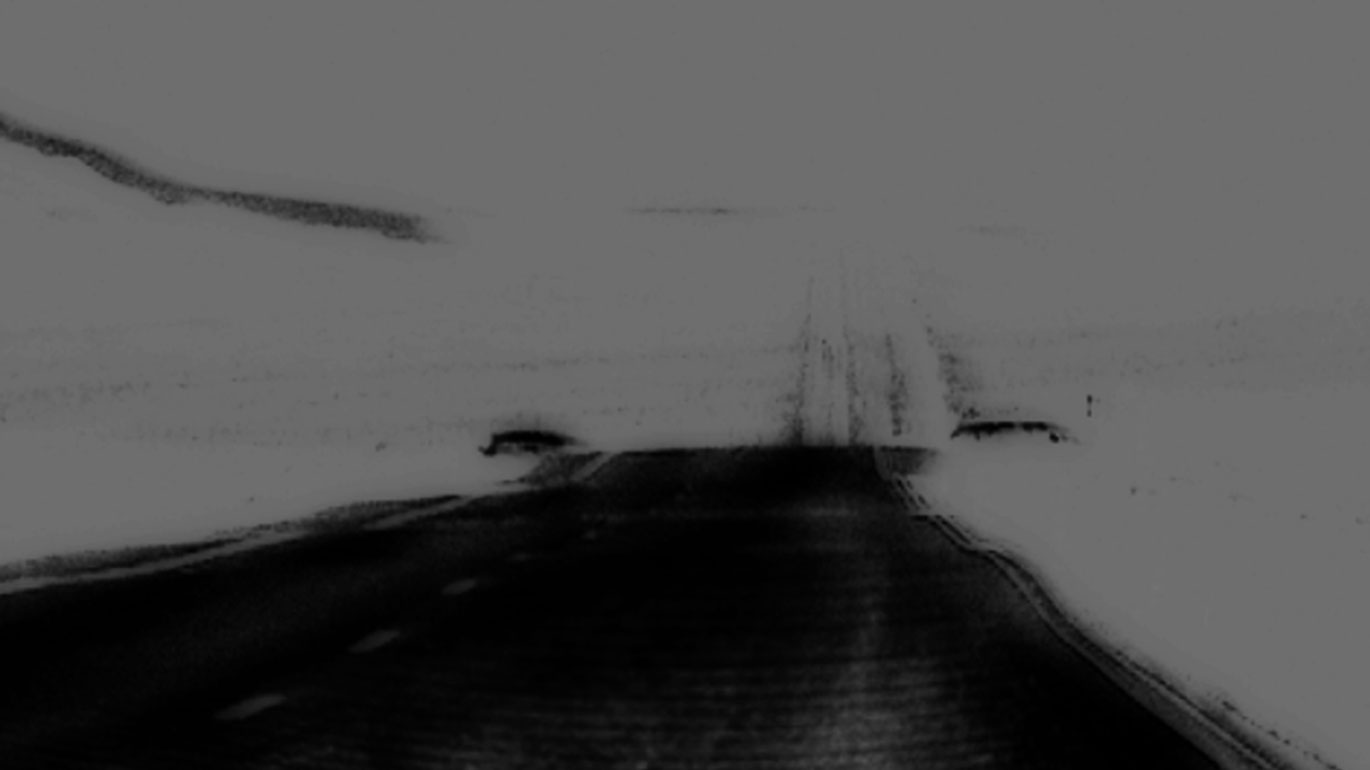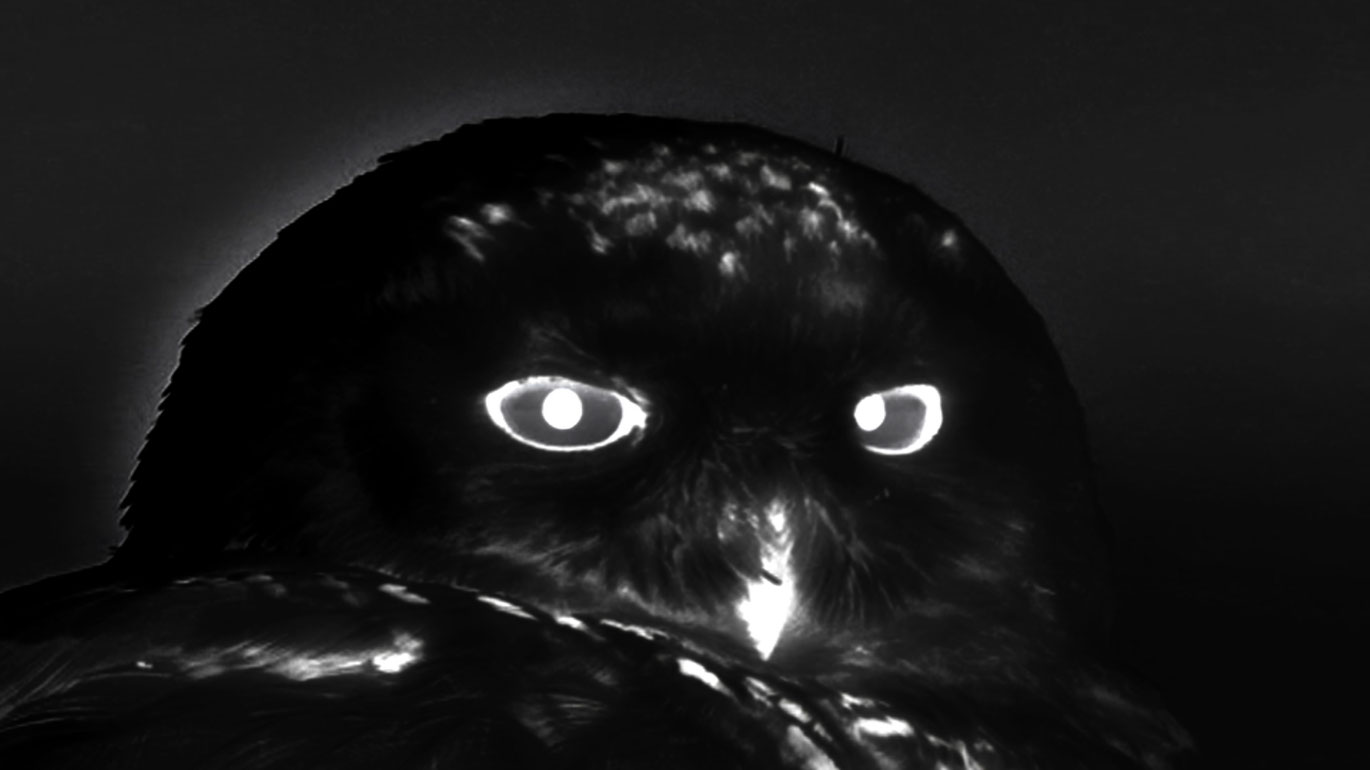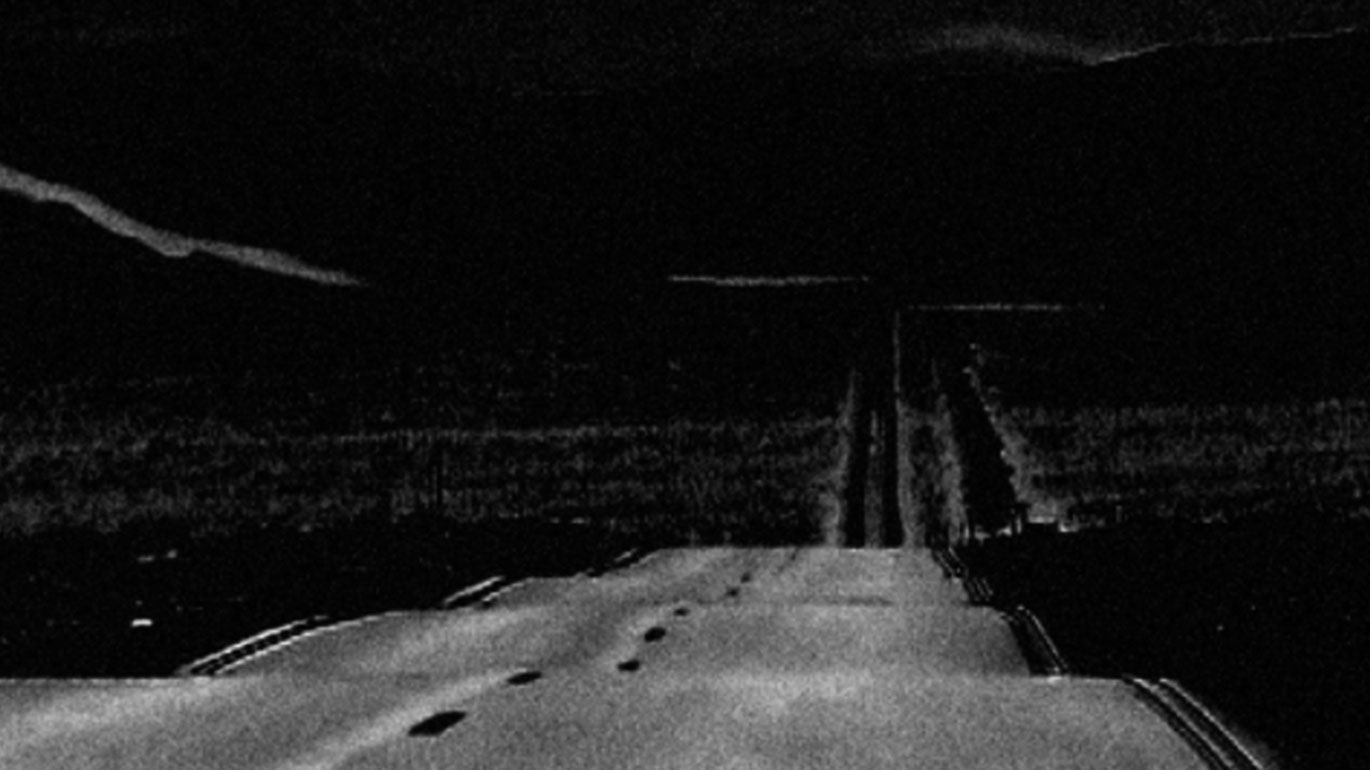carte noire
White flashes in the dark of the night. As though etched out, dabbed in. Flickering specters, ghostly visions. A veritable phantom ride, a film of tension.
In carte noire, Michaela Grill’s sinister road movie miniature, she continues her cinematic movement from an object’s abstraction to its alienation. She now arrives at a classical, and highly charged motif from popular culture and cinema: the lonely car ride on an empty road through the countryside, which more or less automatically sets off trans-genre associations. Not only at the surprising end, one can assume that hinted at here, among other things, is a “lost highway,” based loosely on David Lynch.
The film is based on a subjective, straight ahead shot, with a view of the asphalt strip of road including the middle stripe. First it disappears behind a knoll, then surfaces again and leads to the next hill. One seems to make out a sparse steppe landscape on the sides, a gently rising mountain on the horizon. The digital processing has turned it into a negative image in flickering black-and-white, like oil pastels on dark board. It is a scarce two-and-a-half minute fragment of a nocturnal drive on precarious terrain, endowed with a quivering, uncanny sound by Andreas Berger. The asphalt vibrates and the horizon lightens. The motor rattles and view blurs. An imaginary trip. Film noir. carte noire. Based loosely on David Byrne, we’re on the road to nowhere. The little owl is waiting.
(Isabella Reicher)
carte noire
2014
Austria, Canada
2 min 30 sec



